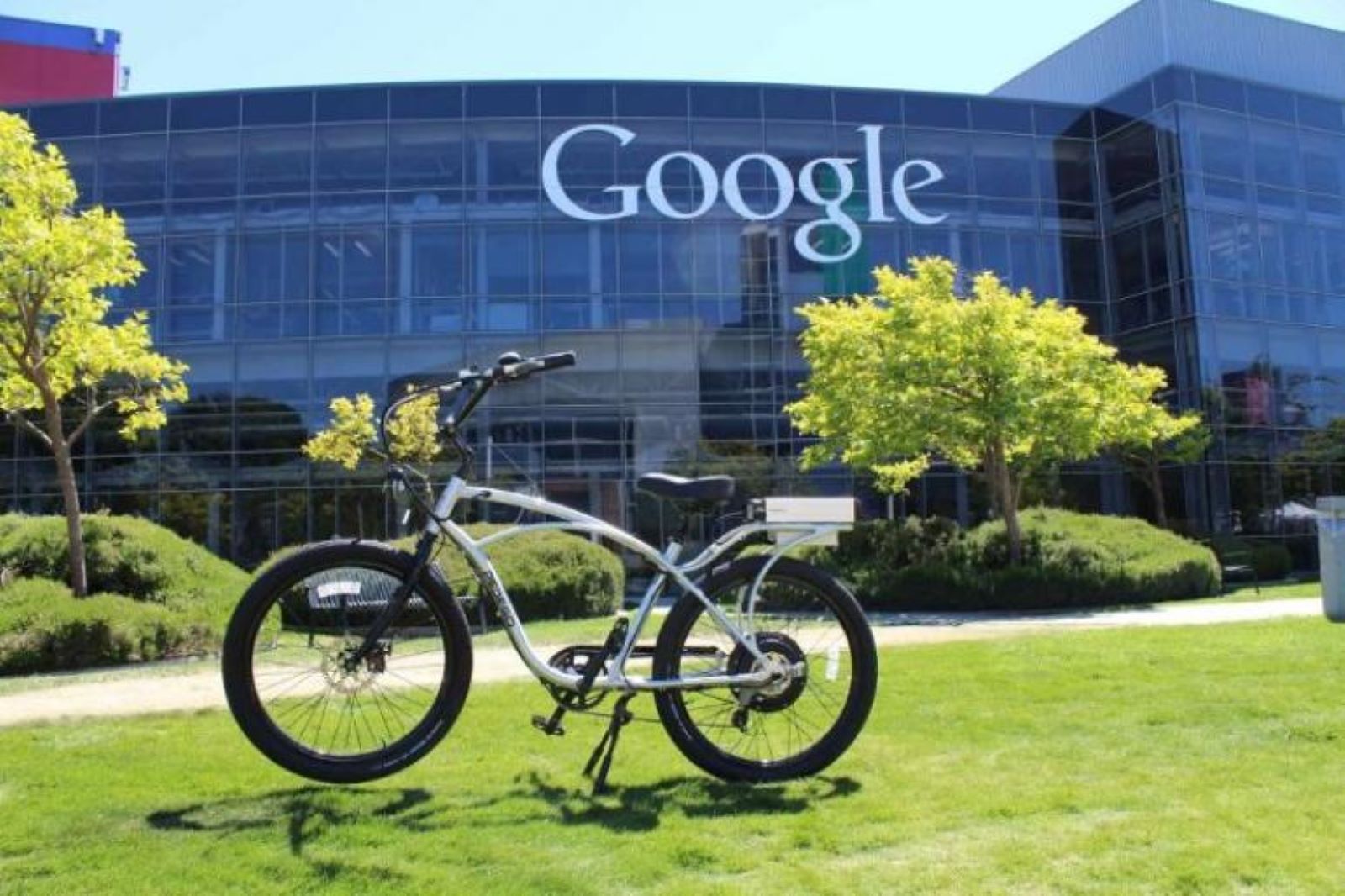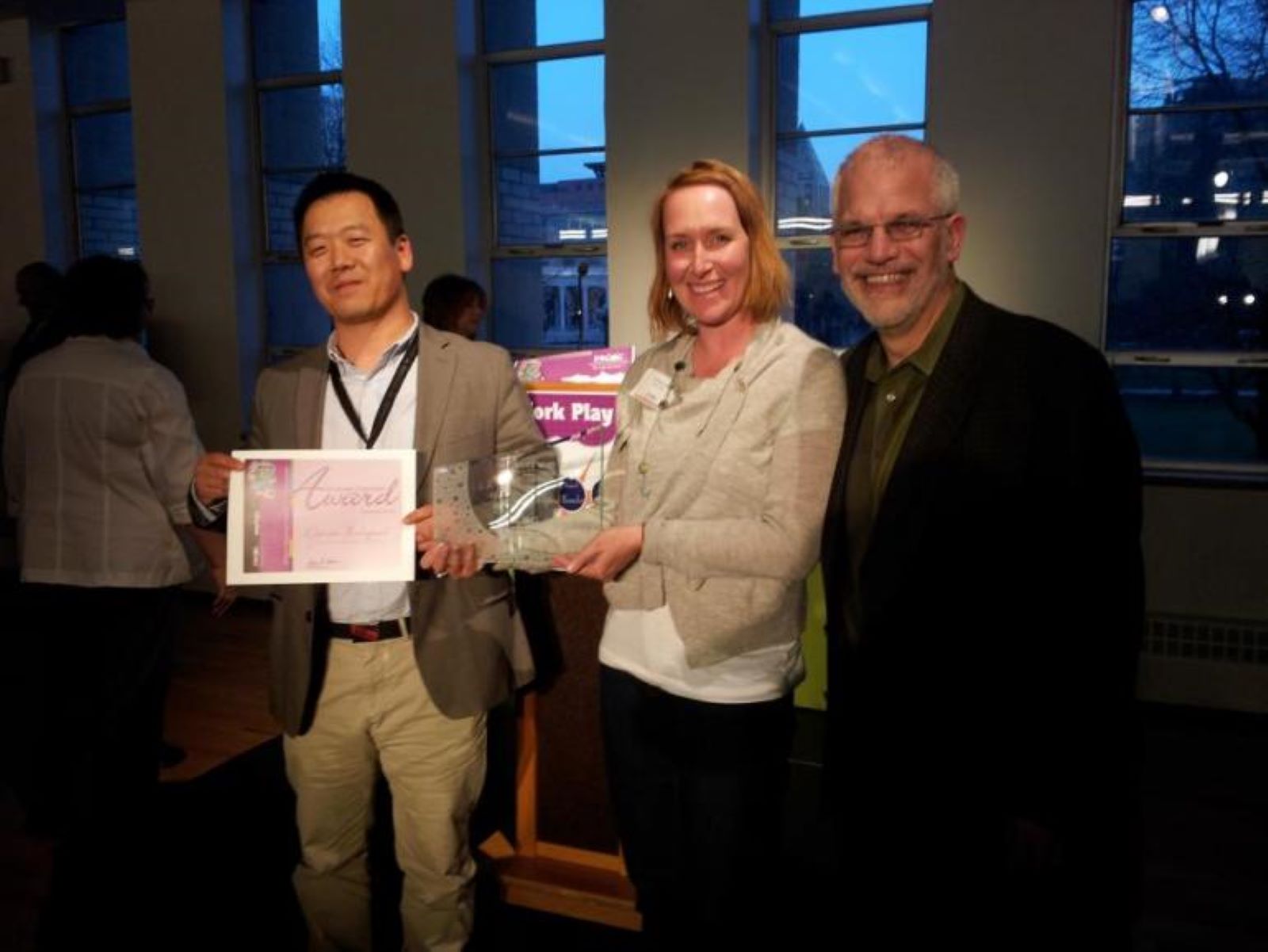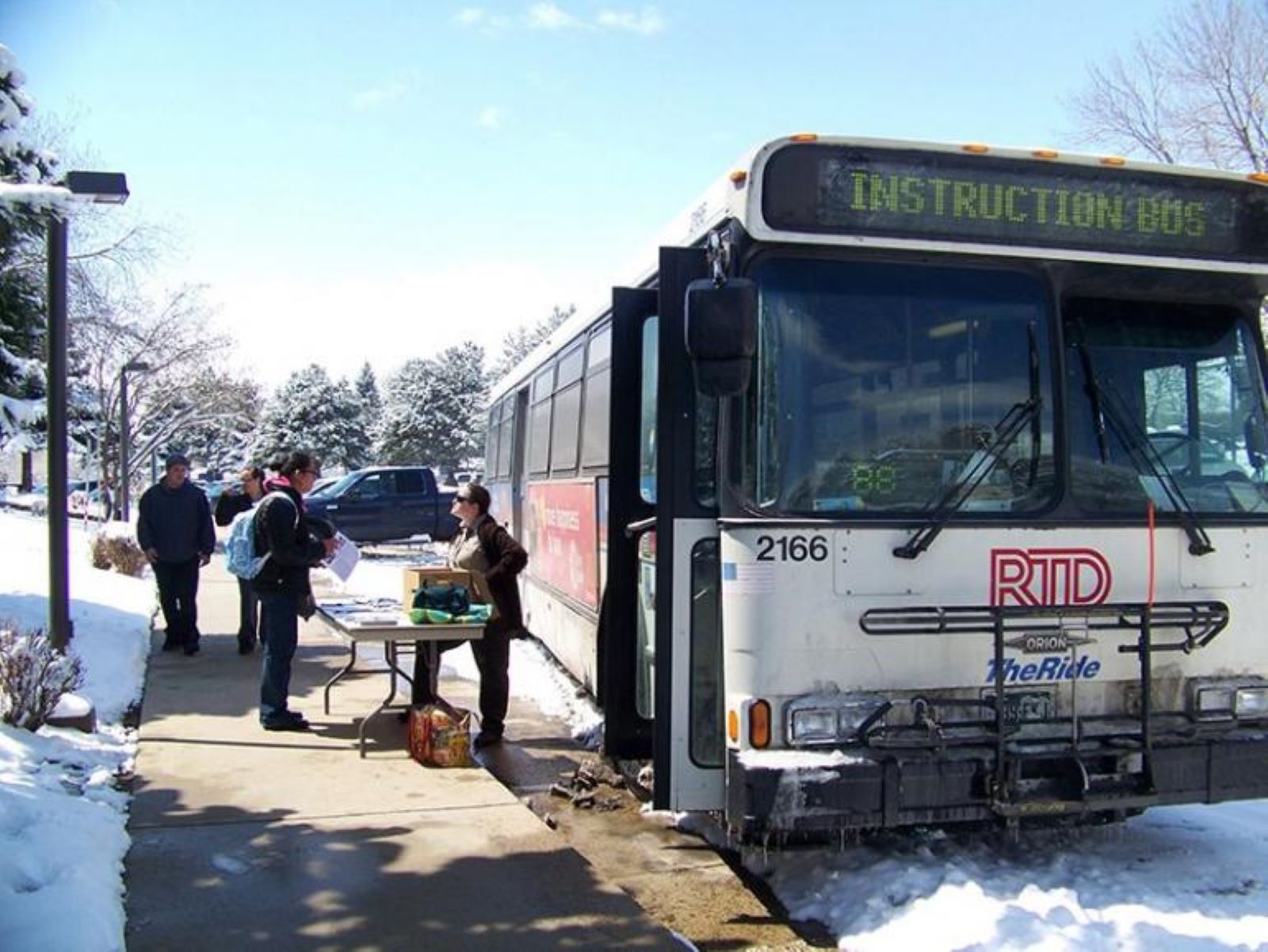
Google has a company-wide commitment to increasing transportation options for their employees and reducing their carbon footprint. Google — independently and in partnership with Boulder Transportation Connections and 36 Commuting Solutions — has completed initiatives to help the company and its employees achieve its sustainability goals.
Google has several initiatives already in progress. Google is a member of both Boulder Transportation Connections and 36 Commuting Solutions — two of Way to Go's Transportation Management Association partners — working to improve air quality and make life better for the region's employers and their employees.
Google completely covers the cost of the Regional Transportation District's EcoPass and B-cycle memberships for all 250+ Boulder employees, as well as the cost of vanpools used through the company's national partnership with Enterprise and the Guaranteed Ride Home program. In addition, they provide gas cards for employees who carpool.
Google supports bicycle commuting by providing on-site locker rooms, shower facilities, secure bicycle parking and by sponsoring the Boulder B-cycle station right in front of their building. They also host an annual Bike to Work Day breakfast station and strongly encourage employee participation.
Google provides preferential parking for carpools and vanpools and has installed four electric vehicle charging stations. They will soon be instituting a company carshare program and are researching a shuttle service to and from the nearest Regional Transportation District Park-n-Ride for employees.
Boulder Valley School District Transportation Department

Within Boulder Valley School District's Transportation Department sits a two-person operation called TO School. Its responsibility is to reduce car trips to and from schools to make school zones healthier and safer for children. TO School hosts Safe Routes to School programs, an annual walk and bike to school day and last year helped to lobby successfully for an EcoPass program for its 4000 staff members.
One of its more recent innovations is Trip Tracker, a program that encourages and rewards walking, biking, busing and carpooling to school. Students are rewarded monthly with Trip Tracker Dollars that they can spend like real cash at participating, kid-friendly local businesses like ice cream and frozen yogurt shops, a local fun park (mini-gold, go-karts, batting cages, etc.), a used bookstore, a used sporting goods store, coffee shops and restaurants.
Three middle schools implemented Trip Tracker last year, and parents reported that it helped their families save over 100,000 miles of school driving. Over 1,000 students participated in the program across 12 elementary, middle, and high schools this year. Students earn Trip Tracker Dollars when their parents report their monthly trip numbers via email, and the program distributes the rewards during lunch at school cafeterias. Distribution is done primarily by parent volunteers as the program transitions into increased parent involvement and support. Students throng to the Trip Tracker table to get their dollars and happily wave them about and show them off to their friends. More and more kids are signing up each month.
The current list of participating businesses has grown to 17, with 23 locations. Boulder Valley School District repurchases dollars from local businesses at 50 cents on the dollar. Trip Tracker has been able to support its buyback program through local grants and limited fundraising from participating parents. They expect to give out over $50,000 in Trip Tracker dollars this year that will go right back into the local economy (locally-owned businesses only). Further information about the program is available at bvsd.org/tracker.
Denver Zoological Foundation

The Denver Zoo is committed to providing programs for employees that support a decreased reliance on cars and increased use of alternative transportation. Their goal is to increase overall employee trips using alternative transportation by 10 percent annually by challenging each employee to use alternative transportation more than twice a month. These programs will help reduce the use of combustion fuels that can damage the environment and contribute to global climate change.
One of Denver Zoo's most innovative programs is its EcoWheels software program. EcoWheels tracks employee commuting and promotes ride-sharing. Thanks to their employee participation in EcoWheels, Denver Zoo can track progress towards its annual goal. In 2012, they increased alternative transportation by 28 percent from 2011.
Employee and guest incentives have played a key role in aiding the success of their alternative transportation programs. Denver Zoo provides a Regional Transportation District Eco Pass to benefit all full-time employees, promoting an ecologically sound option for commuting through public transit. They also host an Alternative Transportation fair for employees and volunteers to increase awareness of bus routes, bike shops and carpooling options. In 2010, Denver Zoo's Workplace Conservation Committee created the Wild Ride challenge, a challenge to one zoo employee to give up their car to commute to work for one full year. In its second year, the Wild Ride Challenge participants have inspired zoo employees to rethink and commit to using alternative transportation to get to work daily.
Over the years, Denver Zoo has encouraged employees to create a mentor program where staff members volunteer to assist others with alternative transportation. These programs have included commuter meet-ups, bicycle traffic safety classes and bike maintenance days. They have also updated facilities on site to include staff locker rooms and a bicycle commuter shed to provide free resources for all commuters.
Over the past five years, Denver Zoo has supported and celebrated cycling through DRCOG's Bike to Work Day. Last year, more than 55 staff members participated in the Bike to Work challenge — riding nearly 300 miles — our most significant participation ever. The initiatives implemented towards decreasing transportation impacts have not gone unnoticed. The Association of Zoos and Aquariums awarded Denver Zoo with the Green Award. At the same time, Bike Denver recognized them with the Bicycle Friendly Business Award, and the League of American Bicyclists awarded them the Silver Level Bicycle Friendly Business Award - all in 2011. They encourage all to use the tools available in the Denver area community to decrease the use of vehicles and enjoy the outdoors while reducing greenhouse gas emissions. Their commitments reach beyond employee efforts. Denver Zoo is an active sponsor of Bike Denver and Denver Bike Sharing. They also offer an admission discount of $2 for guests who use alternative transportation to the Denver Zoo. In 2012, with partners at Bike Denver, we will provide bicycle traffic safety classes to their 65,000 member households.
Boulder County

Boulder County fosters a robust Employee Transportation Program with the intent of reducing single-occupant vehicle trips by employees and leading by example — supporting the Transportation Department's community-wide efforts to increase multi-modal travel. This program provides a variety of policies, subsidies, incentives, education and encouragement techniques. It helps to reduce congestion, prevent air pollution and solve parking challenges while also saving employees money and promoting active lifestyles.
Boulder County has policies that allow for and encourage telecommuting, flexwork and compressed work weeks, with many employees working four 10-hour days each week or just nine 9-hour days every two weeks, reducing the number of commute trips made. Another policy ensures multi-modal options are considered for work trips during the day, with a single-occupant vehicle car trip being allowed only as a last resort if the trip is not feasible by transit, carpooling, bicycling or walking. The county purchases EcoPasses for all 1,900 benefited employees and provides "commuter checks" to non-benefited employees to buy Regional Transportation District transit passes. Vanpool ridership, through DRCOG's Way To Go program (and VanGo), is also encouraged and incentivized with a monthly subsidy check to all employee vanpoolers. Each month, an employee is recognized with a "Star Commuter Award" for their extraordinary commitment to sustainable commuting and rewarded with a gift card to a local business. B-cycle memberships are free of charge to employees, and as of December 2012, employees had taken over 2,500 trips and bicycled over 7,300 miles since the program's inception in mid-2011.
The county has recently partnered with eGo CarShare, placing vehicles at our two largest office complexes and offering free memberships and other fantastic discounts. These cars, along with our fleet vehicles, allow employees to leave their cars at home but have one available to them while at work. All county office locations have bicycle racks for employees and customers, and several office locations provide preferential parking for carpoolers and vanpoolers- including nine spaces at the County Courthouse!
Boulder County Employees have been very active participants in DRCOG's Bike to Work Day, either winning the overall Business Challenge or the award for our division every year since 2007. The county expands on Bike to Work Day by making it a multi-modal week — Transit Tuesdays, Carpool/Vanpool Thursdays & Walk all Week. In 2012, 540 employees participated and received great prizes like Bike to Work Day t-shirts, fair trade coffee and gift cards to local businesses. The County's Employee Transportation Coordinator manages each of these programs. They are promoted through posters, mass emails, the county's intranet site, group B-cycle rides and through presentations at staff meetings and at bi-weekly new employee orientation seminars so that sustainable commuting habits can be encouraged from day one!
